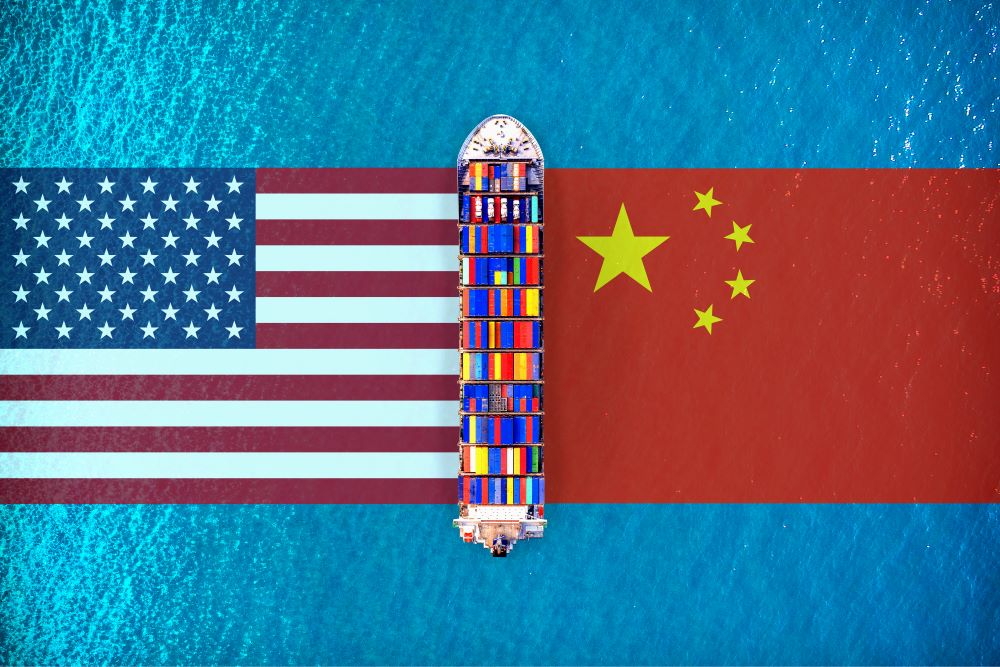
The US is about to review tariffs on more than $300bn of Chinese imports, amid division within the Biden administration over what approach to take to its geopolitical and trade rival.
The tariffs, which were imposed while former President Trump was in the White House in 2018, are set to start automatically expiring in July. A review is required every four years.
The duties impact goods ranging from footwear to pet food and were raised after a US investigation concluded that China was stealing intellectual property from American companies, reports Bloomberg.
Onus on industry
The US Trade Representative’s (USTR) office is notifying about 600 stakeholder representatives of domestic industries that currently benefit from the duties.
This notification puts the burden on US businesses to call for the duties to remain, the SCMP reports the USTR as saying.
Divided
The Biden administration itself is split on whether to pare back tariffs on Chinese imports, according to the Wall Street Journal.
Treasury secretary Janet Yellen and commerce secretary Gina Raimondo favour easing tariffs to help cut the US inflation rate which is at a 40-year high.
Trade representative Katherine Tai and others are reluctant to relinquish US leverage over China as it tries to reshape Chinese economic behaviour.
Longer-term goals
Speaking at a Milken Institute Global Conference, Tai said that US efforts to reduce inflation in the short term shouldn’t sacrifice longer-term policy goals, such as addressing China’s trade practices and enhancing supply-chain resilience.
“We need to make sure that whatever we do right now, first of all, is effective and, second of all, doesn’t undermine the medium-term design and strategy that we know we need to pursue,” she said.
The administration intends to maintain elements of the tariffs that it thinks are helpful to American workers, consumers and industry and alter those that it judges harmful.
Inflation
A study by the Peterson Institute for International Economics found that eliminating tariffs could reduce annual inflation by 1.3 percentage points.
SCMP reports that Tai dismissed the research.
“I really have to challenge the premise of that study,” Tai said. “I think it’s either something between fiction or an interesting academic exercise.”
